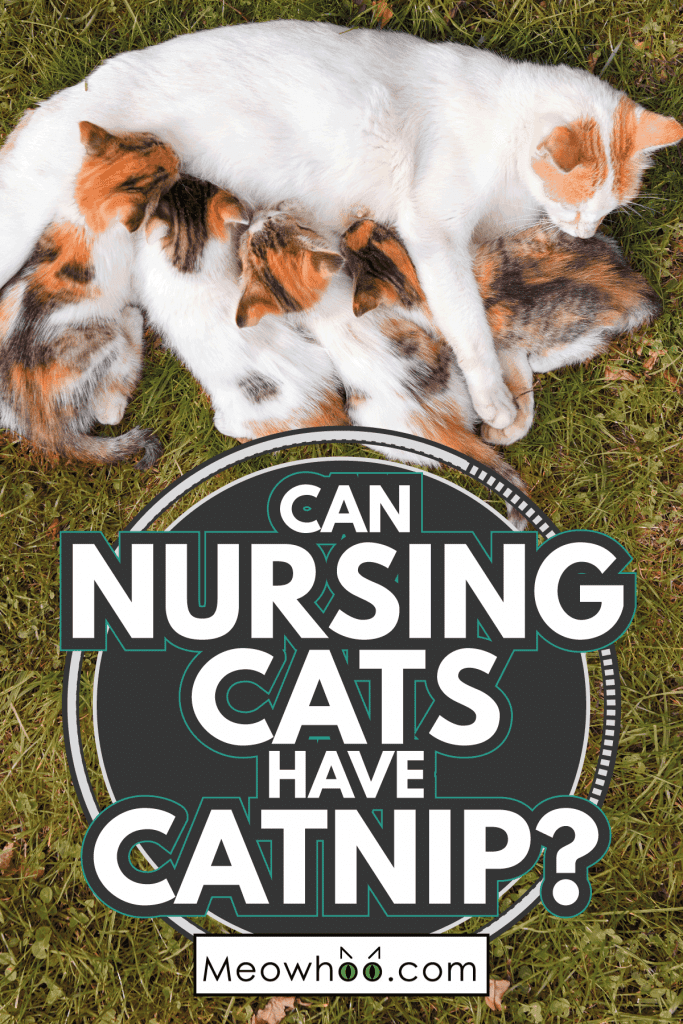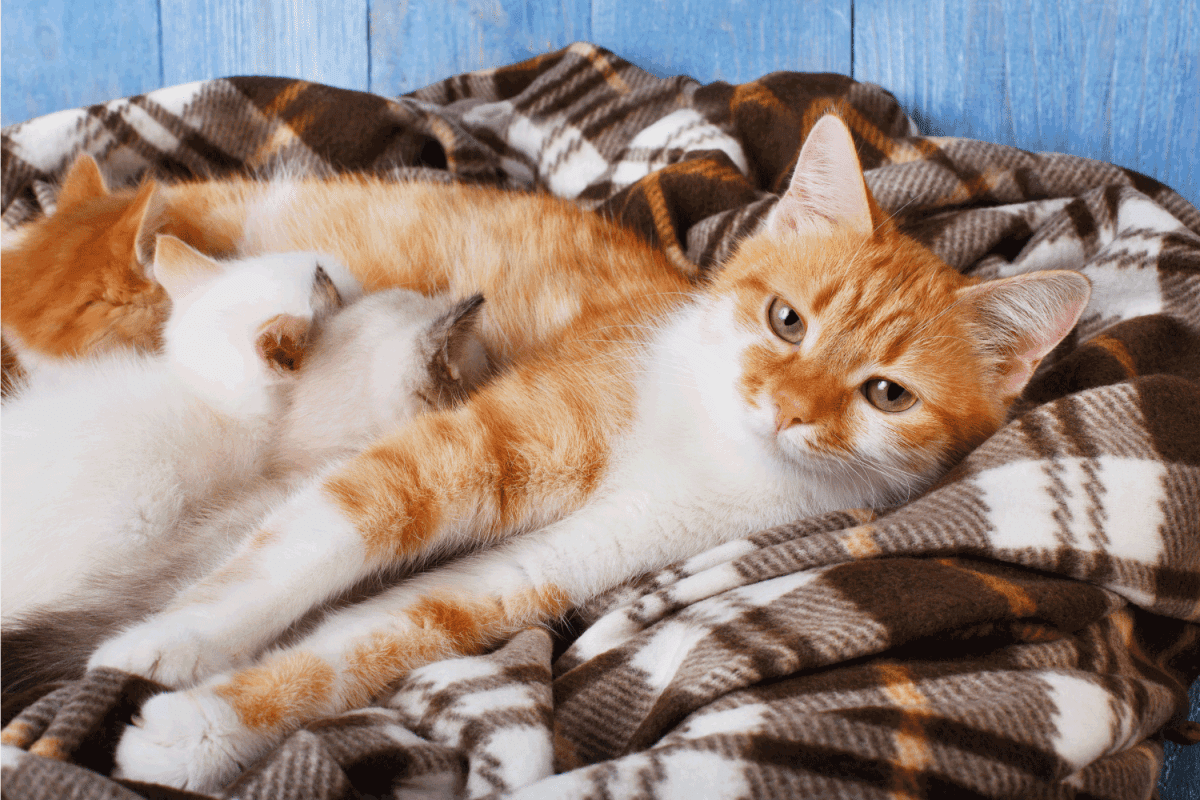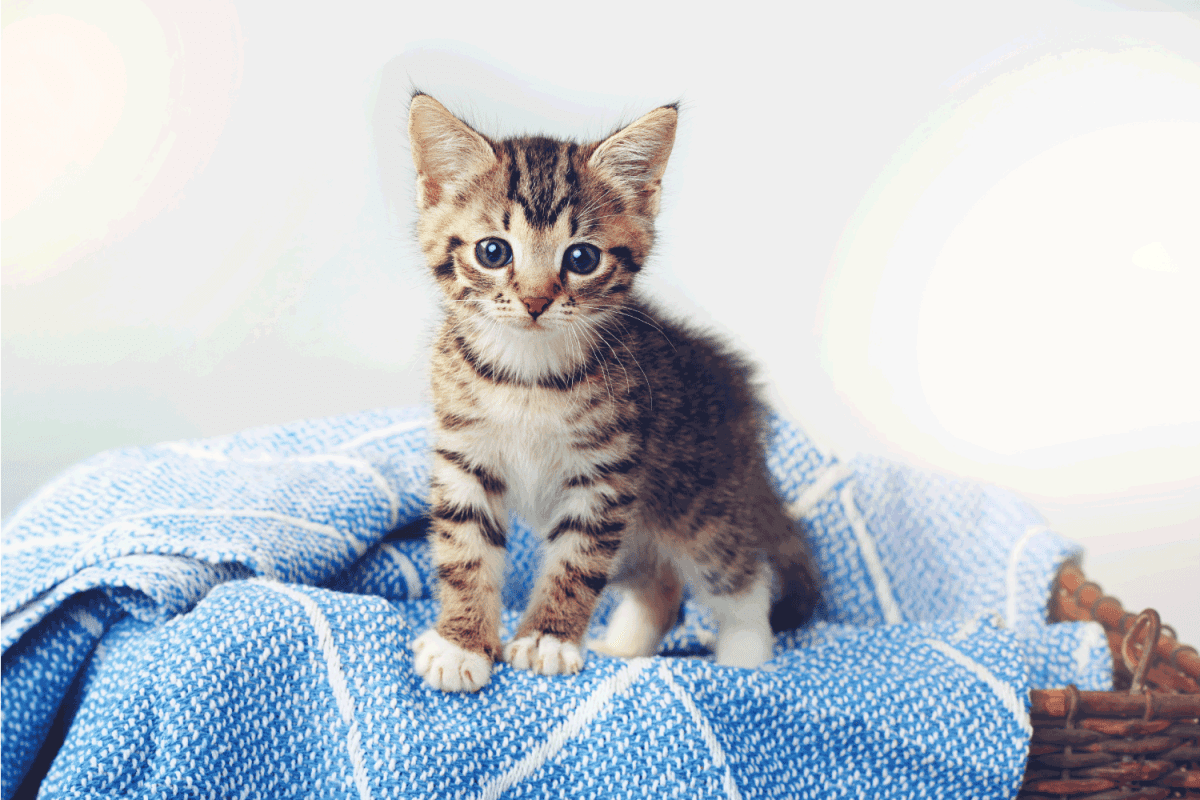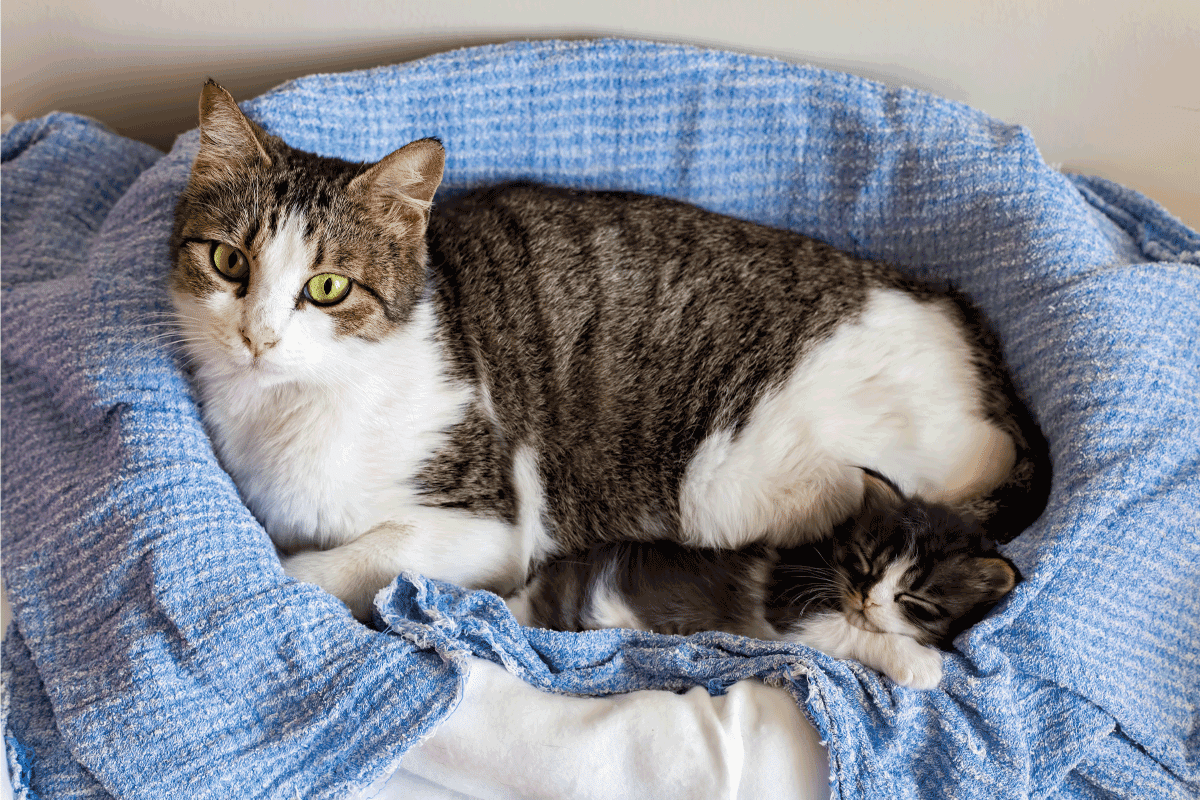Welcome, cat lovers! You've seen it firsthand - the pure joy our furry friends exhibit when they get their paws on some catnip.
But what happens when your cat transitions into motherhood? Can nursing cats have catnip?
Here's the deal...
We're diving deep into this question, considering everything from how catnip affects your cat to its potential impact on kittens.
Are you ready for a journey through the captivating world of feline behavior and health? Well, hold on tight because we're just getting started.
Understanding Catnip & Nursing Cats: Can They Mix?
When it comes to nursing cats and catnip, things aren't always black and white.
Sure, it's fun to watch your cat get all silly and playful with catnip, but how does it affect a nursing mom?
This is important...
Just like you, we want your fur baby to be happy and healthy, which is why we dug deep into the research. What we found might surprise you.
Nursing cats can have catnip, but moderation is crucial. Don't forget to consider your cat's current state of health.
Are there any signs of an allergic reaction or unusual behavior after the catnip?
You should check if there are signs of allergic reactions or unusual behavior after giving her catnip.
Wait, there's more...
Even though catnip can stimulate your nursing cat, it should not be given excessively. It's crucial to maintain a proper diet for your nursing cat.

The Green Light for Catnip: What You Need to Know
Catnip is safe for nursing cats. Most cats like to eat or sniff the plant as an herb, or you can infuse it in cat toys.
No matter what form of catnip you give to your cat, just be sure to give it in small doses.
Remember that your nursing cat must have the energy to take care of her kittens and recover from post-pregnancy conditions.
It would also be beneficial for your nursing cat to eat some catnip to help repel fleas. You can potentially help the mother cat and her kittens avoid flea anemia.
If you are still hesitant, be sure to speak with your veterinarian about giving your nursing cat catnip.

Post-Pregnancy Cat Nutrition: What's on the Menu?
The first few weeks after your cat gives birth are crucial to both mother and kittens. The mother cat should regain her energy with the extra nutrients she needs.
You have to feed your nursing cat the right types of food. You can let her take high-quality kitten formula food that should continue until the kittens have been weaned.
If you have cats who are picky eaters, you can feed them canned tuna, chicken, or salmon.
Everything in the nutrient-intense diet of the mother cat helps her to produce milk for her kittens.
Some nutrients to look for in cat food for your mother cat include:
- Vitamins and nutrients for vital organ functions
- Antioxidants to strengthen the immune system
- Prebiotics for good digestion
- DHA helps in brain development
- Protein to get support for bones and muscles
You may also check out some cat food recommendations for your nursing cat.
Feeding Frequency: The Nursing Cat's Diet Plan
Aside from deciding what type of food to give your nursing cat, it will also help to plan how often to give her food.
A nursing cat must get more nutrients to recover and produce milk for the kittens. The mother cat's appetite increases from 1/2 to double her usual intake.
It is best to let your nursing cats free-choice feed themselves. By doing so, your mother cat can eat as much food as she wants.
You can also feed the cat every 3 to 4 hours with normal servings of food. Place food and water so that your cat can have unlimited and easy access to it at all times.
After a month, when the kittens wean, the mother cat will come back to her normal eating habits.
The Nursing Timeline: A Mother Cat's Responsibility
The period for nursing the kittens will take at least 3 1/2 to 4 weeks. During the nursing period, the kittens depend on their mother for the nutrition they need.
Your kittens will nurse every 1 to 3 hours for the first three weeks after birth.
After your kittens reach 1 month old, they will start weaning.
As much as you can, help your kittens and the mother cat as they go together through the early development stages of life.
Your involvement will also help form strong bonds with your cats when they grow older.
The Kitten's Catnip Experience: Fun or Dangerous?

It is generally safe for kittens to eat catnip. Just be careful not to give them too much dried or fresh catnip.
The side effects of catnip overdose include vomiting or diarrhea.
Aside from the health issues, your kittens can also get hurt if they run around the house. Furniture and other objects can create hazards for kittens.
If you want to introduce catnip to your kittens, you can give it as a fun reward. To be safe, give catnip in moderate servings.
Cats lose interest in catnip if you give it to them very often. If you give too much, your cats can self-regulate themselves and ignore catnip.
While your cats are still young, you can use catnip-infused toys instead of fresh or dried forms.
But with time, your kitten may ignore the toy. Read through a related post about catnip-infused toys here: How Long Should You Let Your Cat Play With Catnip?
When Can Kittens Try Catnip?
You can give catnip to cats of all ages. Most kittens will respond to catnip when they are at least 6 months to one year old.
Some cats might respond earlier if introduced to catnip at an earlier age. Some slowly get sensitive to it as they grow older.
The reason why kittens can have catnip depends on the development of their sense of smell.
If your kittens are 3 months old and below, it is highly likely that they will not react to catnip. But you can try giving your kittens small amounts of catnip to check how they respond to it.
Catnip's Impact on Kittens: Euphoria or Lethargy?
Catnip makes your kittens act crazy and energetic by triggering the feline "happy" receptors.
Although catnip can uplift your kitten's mood, some might also feel sleepy and sluggish after ingesting some.
Your kittens may feel the effects of catnip for around 10 minutes to an hour. But the euphoric feeling may stay for a couple of hours more.
Once the effects of eating or sniffing catnip fade, your kitten might respond again to another dose.
The common effects of catnip on kittens include:
- Rolling or flipping
- Rubbing on surfaces
- Zoning out
- Aggressive behavior
- Hyperactivity
- Meowing and growling at the same time
Some kittens don't respond to catnip. According to the Humane Society of the United States, about 50 percent of kittens may have inherited genes that make them snub catnip. Hence, the effects will vary for different kittens.

The Final Take
Catnip is safe for your nursing cats and their kittens. You can give catnip to mother cats to help repel fleas and keep them active.
Even though catnip is beneficial to mother cats, it is still important to prioritize proper nutrition. Your nursing cat must be able to recover so she can take care of her kittens.
Kittens nurse until they reach 1 month. Also, most kittens may not respond fully to catnip until they are at least 6 months old.
Although it's safe, only give small doses of catnip to the mother and her kittens.
Read these related articles about catnip:
How Often Should You Give Your Cat Catnip?
Can I Put Catnip In My Cat's Food?
Some elements on this page may have been created by our team using advanced AI to provide you with top-notch cat inspired ideas. Read more about our AI Content Policy.
